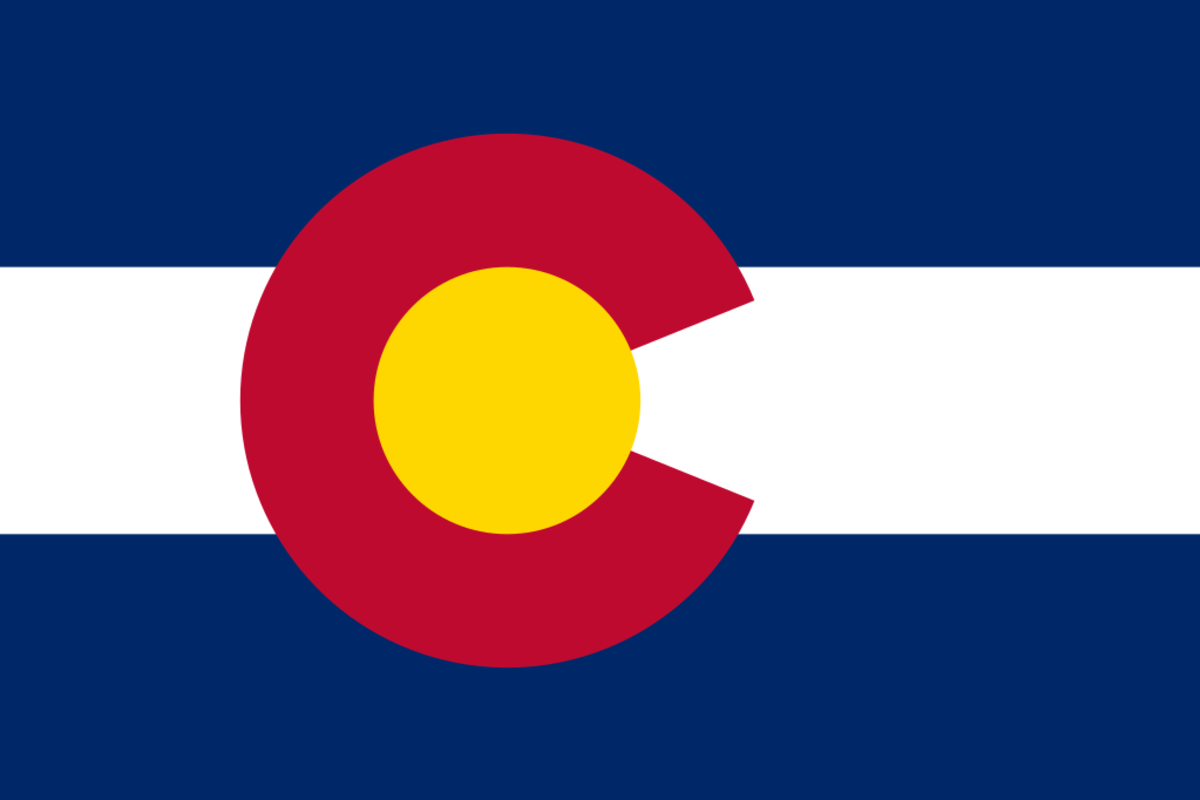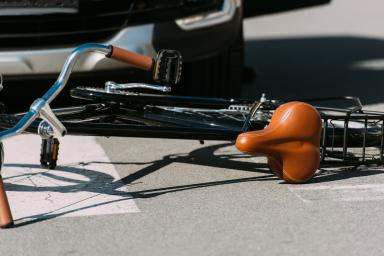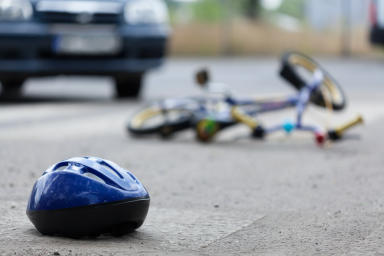Colorado Bicycle Laws

With its varied topography and cycling-friendly neighborhoods, Colorado has developed into a sanctuary for cyclists. The state offers a variety of cycling opportunities, from the busy sidewalks of Denver to the peaceful mountain trails of Grand Junction. However, the increasing popularity of this mode of transportation makes it necessary to implement regulations to ensure safety on public roads.
It is crucial for cyclists to familiarize themselves with the local bicycle laws that define their responsibilities and equally protect their rights. Similarly, drivers of motor vehicles must do the same and understand how to share the road without causing problems. Colorado adopted laws in 2019 that impose harsher penalties on drivers who cause serious injuries, especially to vulnerable roadway users, such as bicyclists. Senate Bill 19-175 categorizes these violations as Class 1 traffic misdemeanors punishable by 10 to 12 months in prison and a $300 to $1,000 fine. This article aims to provide guidance on Colorado's bicycle accident laws, assisting victims in navigating the intricate and complex legal landscape.
Colorado Safety Stop Law
House Bill 22-108, also known as the Colorado Safety Stop Law, applies to low-speed, low-profile vehicles used for transportation and recreation, such as bicycles and electric bikes, electric scooters (except mopeds), and wheelchairs.
The measure, passed on April 13, 2022, permits bicyclists aged 15 and above to pass through stop signs without stopping first as long as they use caution and give way to other drivers and pedestrians who have the right of way. If there is no approaching traffic, bicyclists may also drive through red lights after coming to a complete stop.
It is important to note that the Safety Stop has no bearing on Colorado's right-of-way regulations. Bicyclists may go past stop signs and red lights only if no other traffic has the right of way. In addition, no one under the age of 14 should attempt the Safety Stop without oversight from an adult. In addition, at bicycle-specific traffic signals and stop signs, riders are not allowed to carry out the Safety Stop.
Is There a Colorado Bike Helmet Law?
No law exists in Colorado that requires cyclists to wear helmets. However, the Colorado Department of Transportation recommends that cyclists wear protective gear such as helmets, eyewear, and gloves whenever they are on the road. Individuals who wear helmets are advised to replace them periodically due to the potential impact of accidents, aging, and regular wear and tear on the foam material of the bicycle helmet, which may result in decreased effectiveness.
According to CDOT records, the state has seen 13,704 crashes involving bicyclists in the past decade. In an accident involving a bicyclist who is not wearing a helmet and subsequently sustains a head or brain injury, the courts could consider the individual to have acted negligently by failing to utilize head protection despite being aware of the potential risks of injury. Therefore, it is recommended to wear a helmet at all times in order to safeguard oneself from potentially serious injuries and legal responsibility.
Colorado Laws on Bicycle Turn Signals
Any individual riding a bicycle or electrically assisted bicycle must signal their intent to turn or stop in accordance with Section 42-4-903, which states that no one shall turn a vehicle at an intersection unless the vehicle is in proper position on the roadway; however, a person riding a bicycle or electrically assisted bicycle can indicate a right turn with the right arm raised horizontally.
Similarly, when required, a signal of intention to turn right or left shall be given continuously during the last 100 feet traveled prior to turning and shall be given while the bicycle or electrically assisted bicycle is stopped waiting to turn. If the hand is required in the control or operation of the bicycle or electrically assisted bicycle, a signal by hand and arm does not need to be given continuously. To halt, the hand and arm are extended downward.
Bicycle Equipment Law in Colorado
Colorado has laws that require all riders to use certain equipment while riding a bicycle. For instance, a cyclist who rides during the night is required to have a white front headlight that is visible from a distance of at least 500 feet and a red rear reflector that can be seen from a distance of about 600 feet. In addition, bicycles must be equipped with brakes in good working order that enable a rider traveling at a speed of 10 miles per hour to come to a full stop within a distance of 25 feet. The bicycle's sides must also be equipped with reflective material that is visible from 600 feet away. No horns, sirens, or whistles may be attached to bicycles. If more than one person is riding a bicycle, it has to have a second seat.
Retailers of bicycles and electrically assisted bicycles are also prohibited from selling bicycles and electrically assisted bicycles without a unique serial number permanently imprinted or cast into the frame of every bike.
Individuals who are found to have violated any provision of this section will be charged with a class B traffic infraction.
Colorado Bicycle Law on Passing Vehicles
According to Sections 42-4-1004 to 42-4-1008 of the Colorado law, there are certain rules that both bicyclists and motorists must remember when sharing the road.
A driver of a car that passes a bicyclist going in the same direction must always leave at least three feet of space between the right side of the car, including all mirrors and other protrusions, and the left side of the bicycle. This is to avoid “crowding” a cyclist by providing him enough space to maneuver his bike.
Drivers of motor vehicles may overtake and pass another vehicle, including a bicycle, on the right only if the conditions allow such movement safely. No driving off the paved or major traffic area of the road is permitted for this purpose.
Cycling Prohibitions in Colorado
A number of rules in Colorado restrict cyclists from engaging in certain sorts of risky activities. Using a siren or a whistle, transporting more passengers than a bicycle was built for, and hanging onto the back of a moving motor vehicle are all examples of dangerous behaviors that cyclists should avoid. It is also important to note that DUI and DWAI regulations that apply to drivers of motor vehicles also apply to bicycles in the state of Colorado.
In areas where official traffic control devices or local ordinances restrict the use of bicycles or electrically assisted bicycles on sidewalks, pathways, or crosswalks, bicyclists are prohibited from riding their bikes in such areas. If a cyclist needs to go on the sidewalk, they may dismount and walk their bike instead.
Is Colorado a No-Fault State for Bike Accidents?
No, Colorado is not a "no-fault" state. This means that the other driver's insurance will pay for your damages in the event of a collision. Generally, in no-fault states, accident victims must pursue compensation through their own insurers. They cannot sue the party responsible for their injuries or deaths except under extreme circumstances. In contrast, in fault states like Colorado, accident victims can make a claim against the negligent party's insurance regardless of the severity of their injuries.
It is also important to remember that Colorado is a modified comparative fault state. If you are partially responsible for an accident, your damages may be reduced by whatever amount of negligence you contributed. A plaintiff can receive damages in this state if their fault is less than 50%. Equal to or more than that bars him from getting any compensation. As an example, if the plaintiff is found to be 20% at fault for the accident, his compensation will be reduced by 20%. If he is awarded $100,000 in damages by a jury, the recovery would only be $80,000.
How Much Can Someone Sue for a Bicycle Accident in Colorado?
The answer depends on factors like the severity of the victim’s injuries and their share of negligence that led to the accident. When a cyclist is hit by a car, their compensation is based on economic losses (like medical bills and lost wages) and non-economic losses (like pain and suffering). The at-fault driver's insurance coverage should be taken into account as well. Although there is a minimum level of coverage required by the state, many people still drive without the required insurance. If an uninsured driver causes a bicycle accident, the bicyclist can file a claim with their own auto insurer if they have uninsured or underinsured motorist coverage. If the at-fault party has enough money, an experienced bicycle accident lawyer can help the victim seek compensation from them directly.
Note as well that Colorado law limits pain and suffering damages to $250,000 (plus inflation), while economic damages are uncapped.
What Is Colorado’s Statute of Limitations for Bicycle Accidents?
The time limit for filing a personal injury claim varies depending on the parties involved in the accident. Cyclists in Colorado injured in a crash involving motor vehicles can file a lawsuit against the negligent party within three years. This time limit starts from the time of the accident. Bicycle accidents involving other bicycles or negligence by private landowners, construction companies, or local city governments must be reported within two years.
The sooner you can talk to a bike accident lawyer about filing a personal injury claim against the motorist or other party who caused your accident, the better. Waiting until the last minute before the statute of limitations passes might make it harder to put together a solid case.
Legal Resources for Colorado Bicycle Accident Victims
Colorado Bar Association - Licensed Lawyers
This part of the Colorado Bar Association’s website provides clients and plaintiffs access to its directory of licensed lawyers. Additionally, the website assists clients by asking pertinent questions in order to help them narrow down search results and identify a lawyer who may be able to assist them with their issues. Clients may also check on this website to see if the lawyer they are considering is actually licensed to practice in Colorado’s courts.
Colorado Bike Manual
This webpage, compiled and curated by the Colorado Department of Transportation, offers comprehensive information regarding the relevant laws that pertain to bicycles and motor vehicle operators who share the road with them. It serves as a resource for bikers to comprehend complex legal terminology by offering clear explanations and illustrations.
Expertise.com StaffAuthor
Step into the world of Expertise.com, your go-to hub for credible insights. We don't take accuracy lightly around here. Our squad of expert reviewers, each a maestro in their field, has given the green light to every single article you'll find. From rigorous fact-checking to meticulous evaluations of service providers, we've got it all covered. So feel free to dive in and explore. The information you'll uncover has been stamped with the seal of approval by our top-notch experts.




